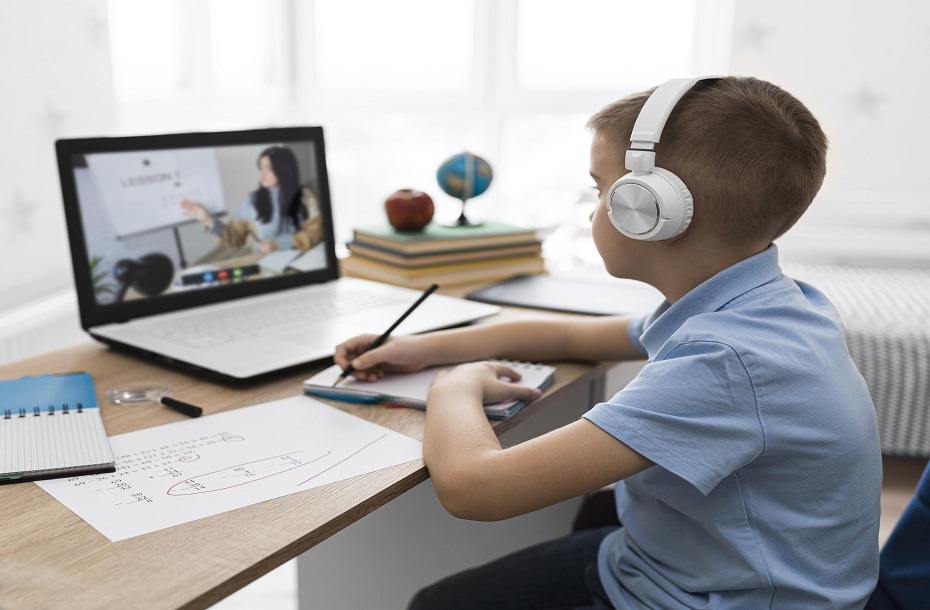
In today’s evolving digital world in India, it has become imperative to equip students with the skills and knowledge they need to thrive in a technology-driven world. With the advent of automation, artificial intelligence, and the internet of things, the traditional paradigms of education are undergoing a significant transformation. In India, a country renowned for its rich history and diverse culture, the need for future-ready education has never been more pronounced. This article delves into the importance of preparing students for a digital future, highlighting key strategies, challenges, and the way forward.
The Digital world in India where technology is reshaping industries and economies, the education sector stands at a crossroads. The need to prepare students for a digital future is a pressing concern, especially in a country like India, where a significant portion of the population is young and eager to embrace the opportunities that technology offers.
The Digital Imperative in Education
The revolution of Digital word in India has ushered in a new era of learning, where access to information is limitless and the boundaries of traditional classrooms are expanding. To remain competitive in a globalized workforce, students must be equipped with digital literacy, critical thinking, and adaptability.
Key Skills for Future Success
As India strides toward becoming a global powerhouse, students must cultivate a diverse skill set that goes beyond textbooks. Skills such as coding, data analysis, communication, and creativity are pivotal for success in a digital world.
Integrating Technology in the Classroom
The integration of technology in education can enhance engagement and facilitate personalized learning. Interactive tools, online platforms, and multimedia resources can cater to diverse learning styles, making education more accessible and effective.
Overcoming Infrastructure Challenges
While the potential of digital education is immense, challenges such as limited internet access and inadequate technological infrastructure persist, particularly in rural areas. Bridging this gap is crucial to ensuring equal access to quality education.
The Role of Teachers in the Digital Age
In a technology-driven landscape, teachers play a pivotal role in guiding and mentoring students. They must evolve into facilitators of knowledge, fostering a dynamic learning environment that encourages curiosity and experimentation.
Personalized Learning and Adaptive Technologies
Adaptive technologies and data-driven insights can enable personalized learning experiences, catering to individual strengths and weaknesses. These tools empower students to learn at their own pace, enhancing retention and comprehension.
Fostering Critical Thinking and Problem-Solving
The digital world is rife with complex challenges that require analytical thinking and innovative problem-solving. Educators must nurture these skills, empowering students to tackle real-world issues with confidence.
Navigating the Virtual Learning Environment
The COVID-19 pandemic accelerated the shift to virtual learning, highlighting the importance of digital preparedness. Students must adapt to online collaboration, digital etiquette, and time management to excel in a virtual classroom.
Bridging the Urban-Rural Divide
Ensuring future-ready education reaches every corner of India is paramount. Initiatives such as digital literacy campaigns and mobile learning platforms can bridge the gap between urban and rural students, fostering inclusivity.
Online Resources and Open Education
The internet offers a plethora of open educational resources, from e-books to virtual labs, democratizing access to knowledge. Embracing open education can empower students and educators alike to explore and innovate.
Assessing Future-Readiness
Measuring future-readiness requires a holistic approach, considering not only technical skills but also emotional intelligence, adaptability, and resilience. New assessment methodologies are needed to capture these multifaceted attributes.
Collaboration and Global Connectivity
In an interconnected world, collaboration and cultural competence are invaluable assets. Virtual exchanges, international projects, and global partnerships can broaden students’ horizons and prepare them for a diverse global workforce.
The Future of Education: Trends and Possibilities
The journey toward future-ready education is an ongoing evolution. As technologies like artificial intelligence and virtual reality continue to advance, the possibilities for immersive and personalized learning experiences are boundless.
Conclusion
In conclusion, the landscape of education in India is undergoing a profound transformation, driven by the imperatives of the digital age. To prepare students for a future that is increasingly digital and interconnected, educators, policymakers, and stakeholders must collaborate to cultivate a dynamic, inclusive, and future-ready learning ecosystem.
FAQs (Frequently Asked Questions)
1. What is future-ready education?
Future-ready education refers to an approach that equips students with the skills, knowledge, and adaptability needed to succeed in a rapidly evolving digital world in India.
2. How can technology enhance learning in classrooms?
Technology can enhance learning by providing interactive and personalized experiences, catering to diverse learning styles and fostering engagement.
3. What challenges do rural students face in accessing digital education?
Rural students often face challenges like limited internet access and technological infrastructure, hindering their access to quality digital education.
4. Why is critical thinking important in a digital world?
Critical thinking is essential in a digital world as it empowers individuals to analyze information critically, solve complex problems, and make informed decisions.
5. What is the role of teachers in future-ready education?
Teachers play a crucial role as facilitators of knowledge, guiding students in developing digital literacy, critical thinking, and adaptability skills.
